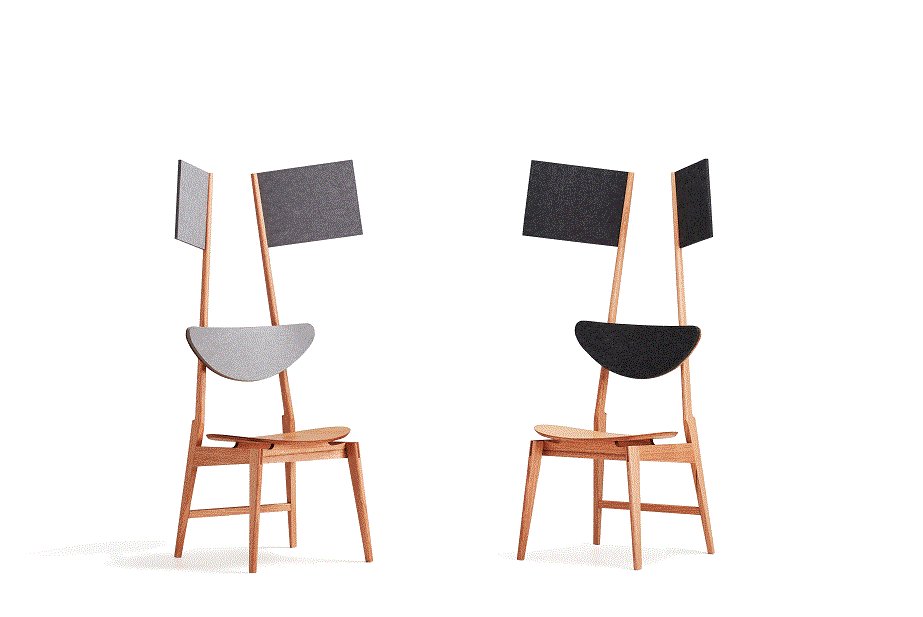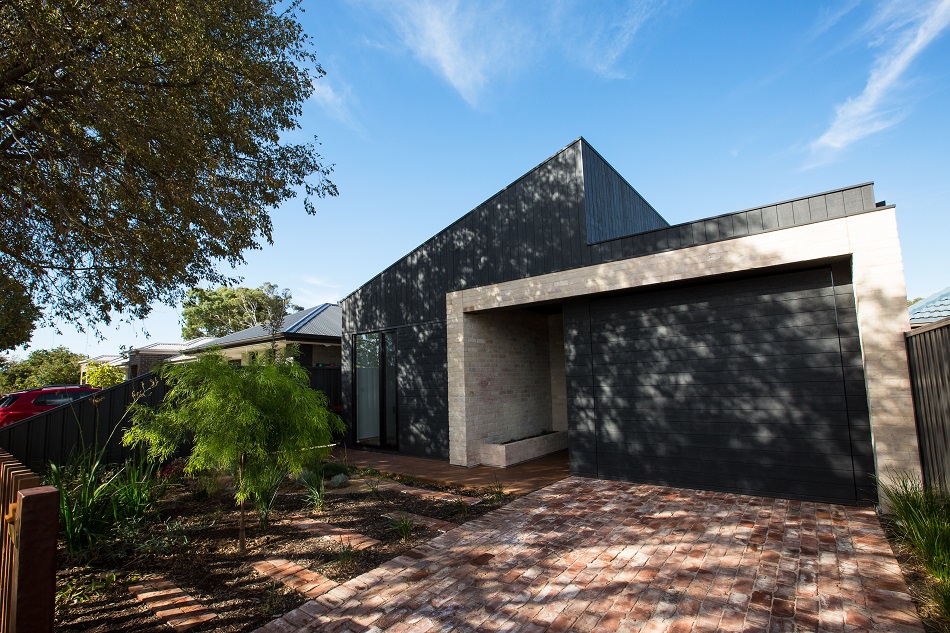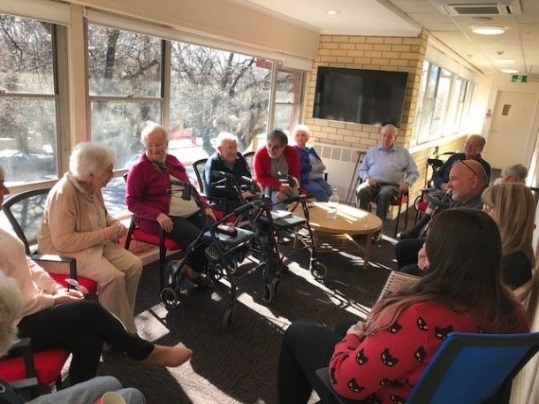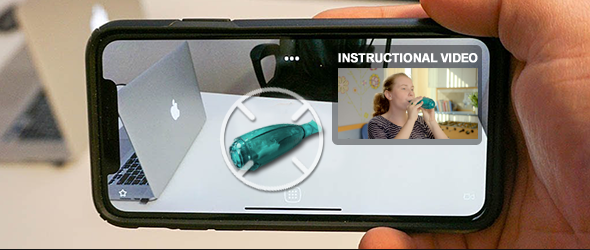Merging design and healthcare
Design Research for Health and Wellbeing brings together teams of researchers, creative practitioners, healthcare workers, and service users.
Our creative group of researchers work across projects that merge design and healthcare in order to help tackle major health issues. Check out our diverse range of projects:
Echo Chair
Designed by Peter Walker
The Echo Chair is designed to address the issue of hearing your dinner partner in a sound polluted dining environment. The chair specifically caters to dinner for two, seated opposite each other. Using the acoustic properties of Echopanel, the exterior surface of the “wings” absorbs and deadens background noise while the interior surface is designed to amplify direct conversational sound by collecting and bouncing soundwaves toward the ears of the seated person.
Echopanel is used in the upholstery of the back rest providing additional comfort while seated and as a sound absorbing surface when the seat is vacant. Echopanel is made from 60% recycled PET plastic bottles.
The Echo Chair references the design aesthetic prevalent in many mid-century chair designs, focussing on negative spaces, floating surfaces and lightness of structure while acknowledging the sculptural presence of TH Brown dining chair and bar stool designs.
Zero-energy Home Envelope Systems
Created by Dr David Kroll, David Morris, Joti Weijers-Coghlan with Mirage Homes
The project supports the development and optimisation of an external insulated envelope system with Mirage Homes as our industry partner for an affordable zero-energy house to reduce the cost of low-energy housing and make it available to a volume market.
The aim is to optimize passive performance of the building envelope (wall, roof, floor and junctions) in order to minimize the reliance on active systems (e.g. air-conditioning). The project addresses health and well-being of homes by supporting a more comfortable indoor environment while at the same time reducing energy-costs and use.
Poor building performance in homes has been a significant contributor to global warming and poor levels of indoor comfort can impact various aspects of well-being (e.g. sleep). The long term aim is to develop this prototype into a built home prototype for submission to the next US Solar Decathlon.
Coping Schools
Created by Margie Kenny & Dr Helen Stallman
Coping Schools forms part of a suite of products developed for health professionals, parents and students for the suicide prevention program ‘Care Collaborate Connect’ developed by Clinical Psychologist and UniSA Senior Lecturer Dr Helen Stallman. The branding and illustrative content developed by Margie Kenny for the program aimed to increase student engagement through effective communication design of the concepts and processes and would be measured through student feedback after a program trial.
The branding and cartoon illustrations for Coping Schools make a connection between the psychological underpinnings of the program and each learner’s experience and point of view. The branding focusses on peer support and is graphically positioned within the broader context of the previously established Care Collaborate Connect communication design. The generic nature of the illustrations allows for representation of different age groups and aims to be relatively non-specific in culture and gender, whilst being relatable, engaging and reassuring.
Pilot data with Year 8 students showed that one month after the lessons, students reported significant improvements in coping self-efficacy and reduced psychological distress. Most students said they enjoyed the program and 70% said other students would find it helpful or very helpful.
The Future Design Hub
The Future Design Hub is both a physical space and an approach. It acknowledges the importance of Design Principles in seeking solutions for the future. The Hub is Helping Hand’s platform for developing innovation and technologies in the ageing space - driven by principles of co-design, commercialisation and collaboration.
The Hub space is at 49 Buxton Street, North Adelaide, located within one of Helping Hand’s residential care homes. It offers the opportunity to explore, develop and test ideas and products which aim to improve the quality of life of older people. The provision of a physical space unlocks the opportunity to undertake research and projects in partnership with residents, as well as links to the broader Helping Hand community.
The Future Design Hub is an Enterprising Partnership project between Helping Hand and UniSA. The two organisations have worked together for more than twenty years developing leading research and student placement programs.
Helping Hand is a South Australian not-for-profit organisation offering home care services, retirement living and residential care home accommodation to over 7,000 clients in metropolitan and regional South Australia.
iHealth for Anxiety and Asthma
Researchers: Assoc Prof Kristin Carson-Chahhoud, Dr Andrew Tai, Assoc Prof Nicola Spurrier, Dr Ross Smith, Prof Adrian Esterman, Prof Ian Gwilt, Dr Helen Stallman with special help from Channel 7 Children’s Research Foundation
The 'Mixed reality and holographic technologies (iHealth) to deliver cognitive and behavioural therapy for the treatment of symptoms of anxiety among teenagers with asthma' project was designed to improve access to and uptake of evidence-based treatments for heightened psychological distress in young people with asthma. The project will evaluate iHealth technology (augmented reality, virtual reality, holographic technology) as a delivery mechanism for cognitive and behavioural therapy.
Development of iHealth tools will be guided by a comprehensive protocol for health program development, with direction from experts in Design, Information Technology, Respiratory Medicine, and Psychology.
The practicality and feasibility of these resources for use by youth, their parents/guardians, and health professionals will be evaluated through qualitative research (focus groups and one-on-one interviews) and a randomised-controlled feasibility study. This study will provide essential pilot data to guide development of a fully powered RCT.









